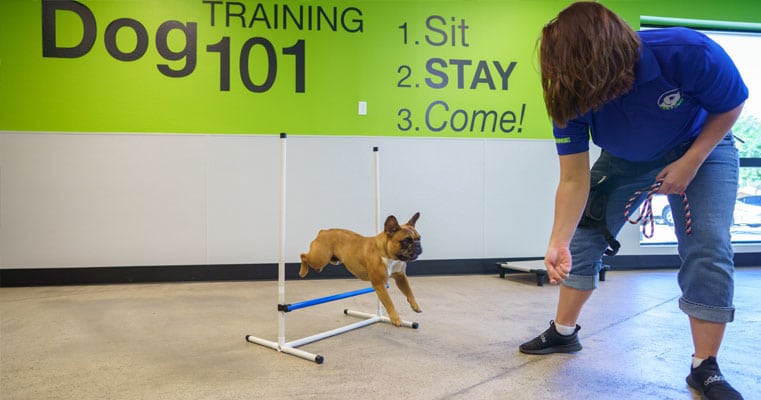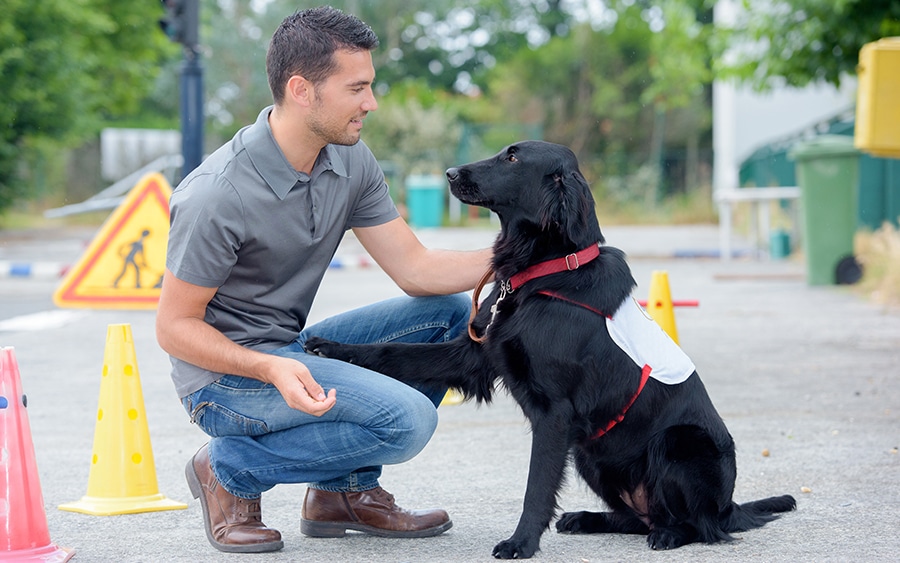Best Dog Training Rochester NY to Correct Behavioral Issues and Improve Obedience
Best Dog Training Rochester NY to Correct Behavioral Issues and Improve Obedience
Blog Article
Transform Your Canine's Habits With Proven Training Approaches
Changing your pet's actions calls for a nuanced understanding of their specific qualities and requirements, as well as the application of proven training approaches. Consistency in your training approach not just improves obedience but additionally cultivates a much deeper bond of depend on and respect between you and your pet dog.

Recognizing Dog Habits
Recognizing pet dog habits is essential for reliable training and communication between human beings and their canine companions. Canines, as social pets, exhibit a variety of behaviors influenced by genetics, environment, and experiences. Acknowledging these habits aids owners customize their training approaches to fulfill the specific needs of their pet dogs.
Trick facets of canine habits consist of body movement, articulations, and social communications. A wagging tail frequently indicates exhilaration, while a decreased head might signify submission or worry. Comprehending these signals can assist owners interpret their canine's emotional state and respond properly. Furthermore, socializing plays an important duty fit actions; pets that connect positively with different individuals and other animals are usually much more well-adjusted and versatile.
Furthermore, identifying stress and anxiety signals-- such as pacing, panting, or avoidance actions-- can protect against acceleration into extra severe problems. Proprietors that are attuned to their pet's habits can create a caring and risk-free environment, cultivating depend on and enhancing the training procedure. Ultimately, a deep understanding of canine actions lays the foundation for an unified connection and reliable training outcomes, guaranteeing both pets and their owners grow together.
Favorable Support Strategies
Positive reinforcement strategies are commonly identified as one of the most reliable techniques for training dogs, promoting a favorable discovering setting. This technique includes fulfilling wanted behaviors with deals with, praise, or play, therefore motivating the pet to duplicate those behaviors (Dog training). Unlike punishing approaches, favorable reinforcement develops trust fund and strengthens the bond between the trainer and the canine
To carry out favorable reinforcement efficiently, timing is vital. Incentives need to be provided quickly following the desired behavior to assist the pet dog make the link. Uniformity is also important; utilizing the exact same commands and incentives aids the pet understand what is anticipated. In addition, varying the rewards can keep the canine engaged. Rotating in between deals with, playthings, and spoken praise can maintain rate of interest and motivation.
It is vital to keep in mind that favorable reinforcement is not about bribery; rather, it is about reinforcing excellent actions. Gradually, as the canine learns to connect specific activities with favorable outcomes, the frequency of benefits can be slowly decreased, transitioning to spoken appreciation or intermittent incentives. This technique not only encourages obedience yet likewise promotes a satisfied and positive canine, making training an extra enjoyable experience for both events entailed.
Resolving Usual Problems
Addressing usual issues throughout canine training is important for ensuring a effective and unified partnership between the pet and its owner. Several canine proprietors encounter behavioral obstacles, such as excessive barking, leaping, and leash pulling. Recognizing the origin triggers of these actions is important for reliable training.
Extreme barking might stem from dullness, anxiety, or a lack of socializing. To mitigate this, offer ample exercise, psychological excitement, and opportunities for social communication with both human beings and other pet dogs. Leaping can often suggest excitement or a desire for attention. Educating the dog to sit upon welcoming can redirect this habits positively.
Chain pulling is one more common problem, often resulting from a canine's passion to check out. Using appropriate leash dealing with methods, combined with training protocols that encourage loose-leash walking, can considerably enhance this behavior.
On top of that, concerns like source securing or splitting up anxiety call for tailored methods. Progressive desensitization and counter-conditioning can be effective web in attending to these challenges. By recognizing and proactively managing these usual concerns, canine owners can cultivate a much more enjoyable training experience and strengthen the bond with their canine friends.
Consistency in Training
Uniformity is a keystone of efficient pet training, as it develops a clear framework for the dog to comprehend habits and expectations. When cues, commands, and incentives are applied uniformly, dogs can extra easily realize what is needed of them. Irregular training can result in complication, resulting in unwanted habits that discourage both the fitness instructor and the pet.
To accomplish uniformity, it is vital that all participants of the house stick to the very same training techniques. For example, utilizing the very same spoken hints and hand signals makes certain that the dog obtains uniform messages. Additionally, the timing of benefits and improvements need to correspond; instant support raises the probability that the pet will certainly link the behavior with the result.
Additionally, developing a regimen can further enhance uniformity. Regular practice, combined with structured routines for feeding, walking, and playtime, help pet dogs expect and recognize their setting, making them extra responsive to training. Inevitably, uniformity cultivates a complacency and depend on, equipping pet dogs to read more properly. By devoting to an organized technique, instructors can advertise favorable habits changes and cultivate a courteous buddy.
Structure a Strong Bond
Exactly how can fostering a solid bond between a pet dog and its owner improve the training experience? When a pet dog really feels safe in its connection with its proprietor, it is much more most likely to display positive habits and be responsive to discovering.

Furthermore, a well-established link can reduce anxiety and behavioral concerns, as pets are much less most likely to act out when they really feel comprehended and taken care of. As a result, focusing on the advancement of a strong bond not just enhances the training experience but also adds to a better and a lot more well-adjusted canine. Eventually, the journey of training transforms right into a collaborative partnership, leading to lasting behavior enhancements.
Conclusion

Owners that are attuned to their dog's behavior can create a nurturing and safe environment, fostering trust fund and boosting the training procedure. Ultimately, a deep understanding of canine habits lays the foundation for a harmonious partnership and efficient training end results, guaranteeing both dogs and their owners thrive with each other.
Addressing usual issues during dog training is crucial Dog training for ensuring a effective and unified relationship between the pet and its proprietor (Dog training).Consistency is a cornerstone of effective pet training, as it develops a clear framework for the dog to understand expectations and behaviors.In verdict, changing a pet dog's habits via verified training approaches calls for an understanding of canine habits, the application of favorable support methods, and a focus on uniformity
Report this page